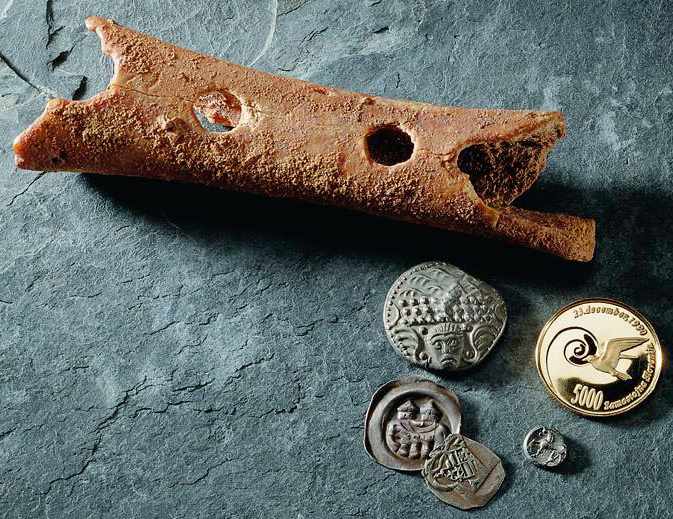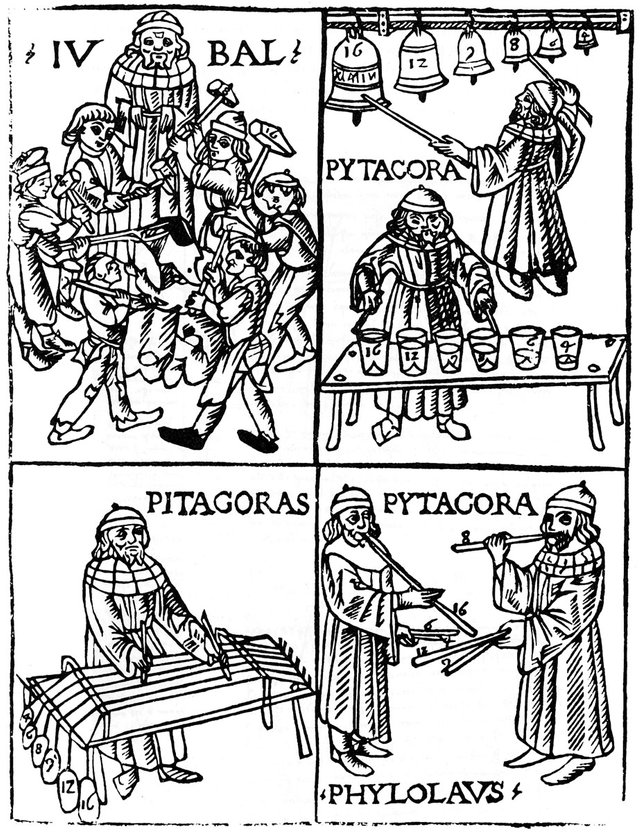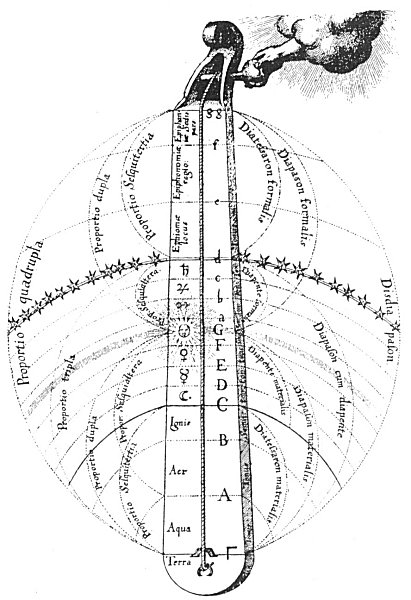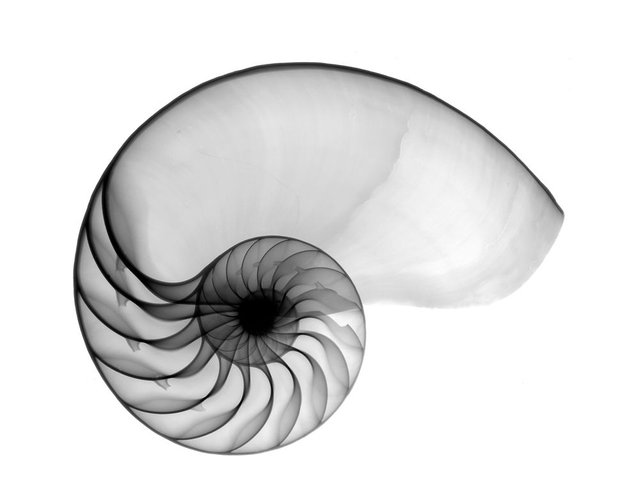Music Series - Episode 1: Musica Universalis - “It’s all in the numbers!”
As part of a series on music, please find below the first episode! You can find the full program and propose ideas for new episodes here:
Recently, I was watching a Netflix series called ‘Touch’. It’s a show about a very particular boy named Jake (David Mazouz). As his father Martin (Kiefer Sutherland) says throughout the show when people ask about Jake: “He has a gift for numbers and patterns.” He sees patterns and numbers in everything; objects, people, animals, buildings, nature... everywhere!
You might think that must drive him crazy, but actually he is a genius. He cannot only see the patterns, he can also predict them and look into the future! Now, this is not all yet, because he’s one of the, so called, ‘36’. Poor kid turns out to have some divine task to relief pain in the world. And if he can’t make that happen, he will feel the pain himself!
So what happens is, this kid just runs about the place trying to relief pain in the world, randomly walking into people’s houses, stealing shit out of peoples pockets, even climbing up a cell tower several times. And his dad is just like... “There’s no stopping this kid, I guess I just gotta follow him around for the rest of my life.”
Which is what he does. Unlike his son though, Martin does talk. Which turns out to be quite shitty for Martin, as he basically gets to talk their way out of every crazy situation Jake’s got them in. Luckily, he used to be a journalist, so he’s got a quick mouth.
Anyways, there’s this one episode of the show where one of the other ‘36’ shows up. He used to be a composer and had reportedly made one of the most beautiful pieces of music in existence. “The Music of the Spheres”, some people called it.
This reminded me of something I’d learned about in college.
The Music of the Spheres
In college, I followed Music History classes. There was a course for each period in history, each taught by another professor. Obviously, the first course I took was about the Middle Ages and before (up till about the year 1500). My professor, a handsome, tanned, middle-aged man with an exceptionally soothing voice, had a passion for music from the middle ages. He would often close his eyes and get into some sort of trance while we were listening to Gregorian polyphonic choir singing in class. That, and his voice, made him somehow fit in with his subject perfectly. He definitely had that ancient vibe going.
From the top of my head, I remember two things from his courses:
- The oldest instrument archeologists ever found was a flute:
 .
.
Source: https://www.smashinglists.com/10-earliest-known-musical-instruments/
- In the middle ages, music used to belong to the Quadrivium, a section of the liberal arts thought in the middle ages, along with arithmetic, geometry and astronomy.
Now, this surprised me, and that is probably why I remembered it. Why did music belong to such sciences as geometry? Shouldn’t it be somewhere with the other arts, like painting, sculpting and theater? How come they thought music’s so important?
Let’s go back in time a little bit (yes, a little more, I promise to keep it light).
Although they didn’t use medieval terms like Quadruvium yet, the idea that music belonged in the curriculum together with the mathematical sciences was already posed by our great friend Pythagoras. Yes, that dude from the Pythagoraen equation (a2+b2=c2). I still get the shivers if I think about those classes...
Anyways, Pythagoras had a very broad interest, and music was one of them. Curious as he was, Pythagoras wanted to know if he could measure sound. Prompted by the consonant sounds of a blacksmith banging on his metal, Pythagaros set out to figure out why some sounds sounded ugly (dissonant) and why some sounded beautiful (consonant). In order to do this, he went on to experiment with the hammers of the blacksmith and found out that it didn’t matter how hard he hit with the hammer, or what material he hit on, it mattered how much the hammer weight.
Inspired by the blacksmith, Pythagoras build a lyre of metal weights and wires and found that the ratios he used would determine the sound. As it was commonly believed in ancient Greek, numbers were the basis of everything beautiful. Just like in the series ‘Touch’, the Greeks believed that it was all in the numbers! Having found a way to measure these numbers in sound and reproduce the perfect mathematical ratios through music, we could say that Pythagoras had invented harmony.

Source: http://arthistoryresources.net/renaissance-art-theory-2014/pythagoras-music-proportion.html
Now this was a major breakthrough! In no way was the Pythagorean tuning the one and only perfect harmony, many other harmonies and tunings were proposed later in history, but he had set the basis of music as a science. He had shown that music was founded on numerical properties. Hence, from then on, music became an important part of the curriculum, fitting right in with the other mathematical sciences.
Most interestingly, Pythagoras thought that these numerical relations and proportions between sounds, were also present in the universe. Planets, according to him, all had a distinctive ‘hum’ (not audible by ear) based on their position and orbit which corresponded with the musical ratios he had discovered. Hence, the Harmony of the Spheres, and later Musica Universalis (Universal Music), an unearthly beautiful symphony that ‘guided’ all of life on earth. And the music that we make as humans, could supposedly bring us closer to the gods.

Source: http://www.sacred-texts.com/eso/sta/sta19.htm
This brings us back to the composer in ‘Touch’. As one of the ‘36’, he could see and hear the patterns and numbers that made up the world and he composed a symphony, based on the Harmony of the Spheres. As crazy as that might sound, at least the producers of the show did not grasp their ideas from the sky. They based their show on ancient Greek beliefs, namely that everything is founded in numbers.
If you’re interested in this idea, a Mathematician named Marcus du Sautoy, has a series on Netflix (yes, I’m a Netflix junkie), called 'The Code'.
In the show, Marcus goes about to discover what role mathematics play in our world. From the perfect geometrical shapes in beehives and bubbles, to the numerical ratios in the shell of a Nautilus and those of an ancient cathedral.

Source: http://newmainbrewing.blogspot.nl/2016/05/why-nautilus-shell.html
It’s an interesting concept for sure! What do you think? Is it all in the numbers?
Very good. Upvoted and resteemed.
You may also make ref to Kepler's Harmonices Mundi and Mysterium Cosmographicum.
--=o=--
To follow curated math content follow @math-trail.
If you wish @math-trail to follow you then read this article.
Thank you! And yeah, nice one, just thought I'd keep it compact for now. :)
I followed you! :)